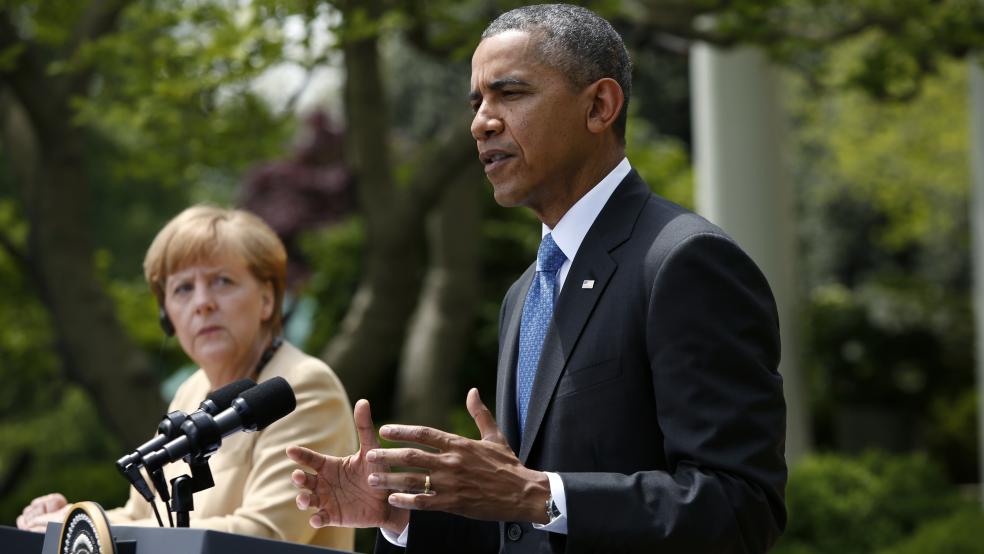President Obama and German Chancellor Angela Merkel put on a brave show of unity today, telling the world they were united in their support for additional sanctions against Russia if Putin continued his incursion in Ukraine or disrupted this month’s presidential election there.
“Our preference is a diplomatic solution to the issue,” Obama said. Merkel added, “Further steps would be unavoidable” if Russia continued to meddle in Ukraine, and that “all of the steps… [the United States and Germany] have taken together.”
Related: Why Putin’s Adventure in Ukraine Is Doomed
This simply isn’t true. The United States has sanctioned both Russian individuals and Russian companies. Germany, the de facto leader of the European Union, has refused to target Russian companies, instead focusing on just individuals.
This focus solely on people close to Putin is a result of German public, political and economic opinion. The German public is split on whether Berlin should be closer to Putin or Obama. German politicians are urging Merkel to show more restraint in her comments condemning Putin. The Wall Street Journal reports German businesses have urged Merkel to lobby Obama for no new sanctions against Russia fearing it could escalate the crisis.
This message must have been well received by Obama. The president downplayed the use of sanctions targeting Russia’s vast energy sector, parroting an argument that’s common among Europeans who want to placate Russia: the relationship between Russia and Europe is a two way street.
“The idea that you’re going to turn off the tap is unrealistic,” Obama said.
Related: How Europe Could Finally Call Putin’s Bluff
If the two leaders were trying to send a stern message to Russian President Vladimir Putin, they failed. Their comments came just hours after Ukraine launched a new offense against Russian strongholds in its east, followed by Putin saying the violence nullified April’s agreement to keep the peace.
“Merkel’s trip to Washington will most likely be marked by photo ops meant to signal agreement, but nothing tougher on Russia beyond words,” said Christian Whiton, a former Bush administration State Department senior advisor.
At the same time, an air of suspicion hovered over the press conference, as anger over the NSA’s targeting of Merkel’s cell phone continues to seethe in Germany. When asked about the surveillance, Obama tried to assure the German leader that she was no longer being targeted, while trying to convince the German public that the United States respects German privacy.
Related: Why Germany and Poland Are Winners in the Ukraine Crisis
“We have shared with the Germans the things that we do,” Obama said. “We’re not holding back from doing something with Germany that we’re doing with everyone else,” he added, referencing the U.S.’ refusal to sign a no-spy pact with Berlin.
Merkel’s comments showed that the debate over American surveillance, and her anger over it, had not fully dissipated.
“We have differences of opinion to overcome,” she said. “We still have difficulties to overcome….There needs to be more than business as usual.”
Top Reads from The Fiscal Times:





